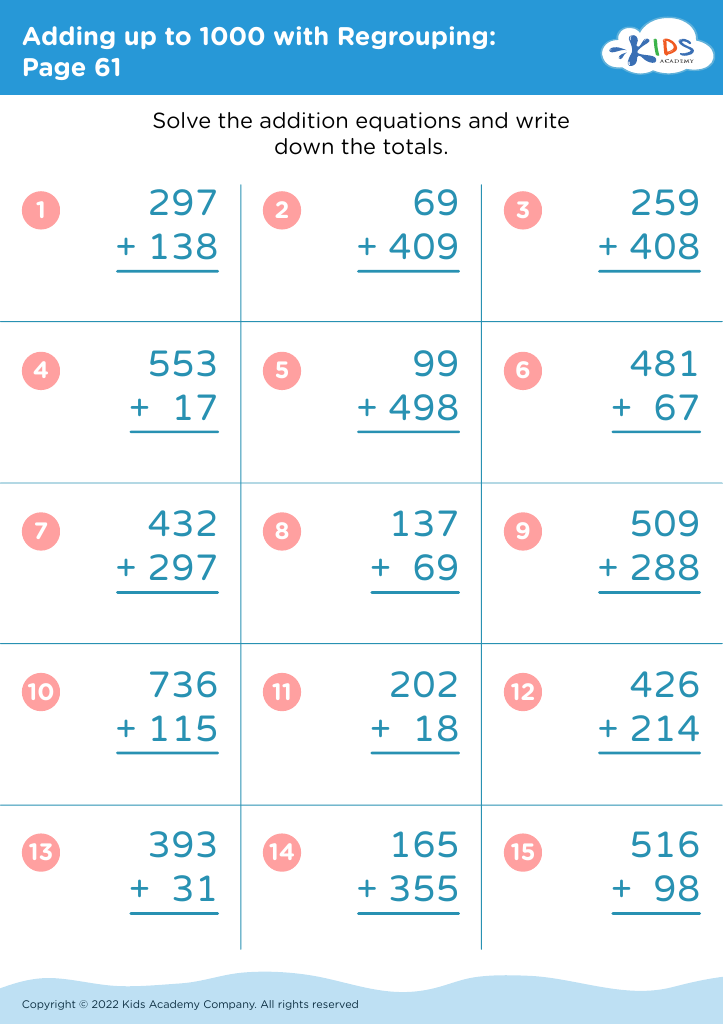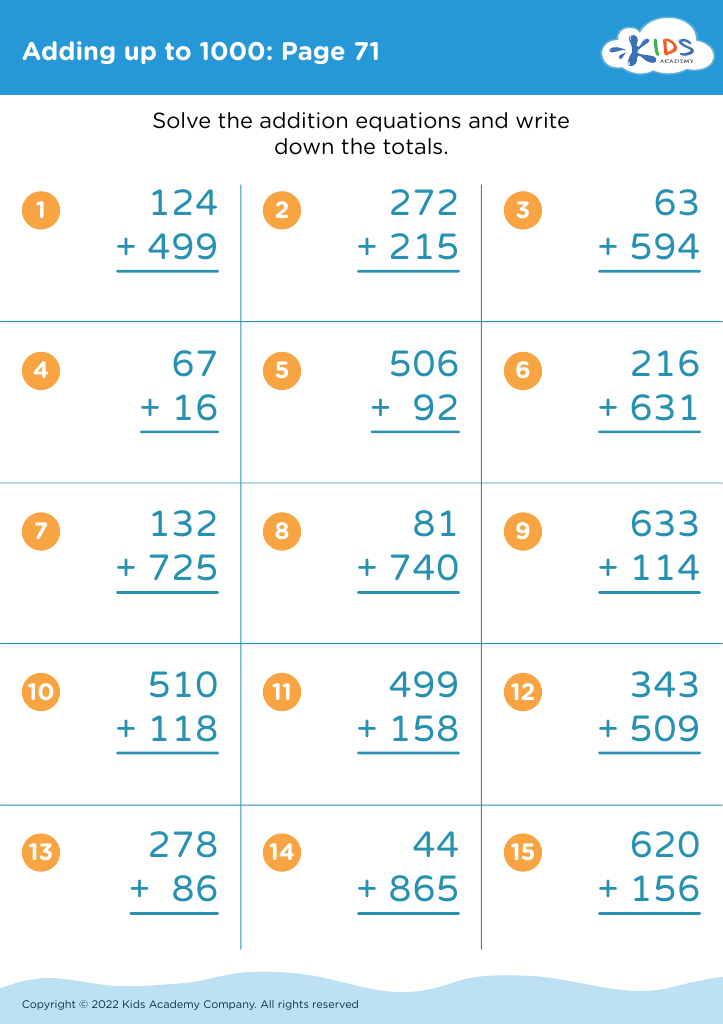Problem-solving abilities Adding up to 1000 Worksheets for Ages 4-9
5 filtered results
-
From - To
Enhance your child's problem-solving abilities with our engaging "Adding up to 1000 Worksheets" designed for ages 4-9! These interactive worksheets are tailored to develop essential math skills, fostering critical thinking and analytical reasoning through fun, hands-on activities. Children will enjoy tackling various challenges that involve addition and understanding numerical relationships, helping them grasp foundational math concepts. Each worksheet is crafted to inspire creativity, boost confidence, and encourage independent learning, making math an enjoyable experience. Perfect for at-home learning or classroom enhancement, our printable resources make it easy to cultivate a strong mathematical foundation. Unlock your child’s potential today!
Problem-solving abilities are crucial for children aged 4-9, as they lay the foundation for critical thinking, resilience, and independence. Parents and teachers should prioritize fostering these skills because they enable children to tackle challenges, explore new ideas, and enhance their understanding of the world around them. At this young age, children are naturally curious and eager to learn; by guiding them in problem-solving, adults can nurture that curiosity into effective learning strategies.
Moreover, problem-solving encourages creativity and innovation. As children learn to approach problems from different angles, they develop flexible thinking and adaptability, essential traits in our rapidly changing society. This stage is also critical for social development, as collaborative problem-solving in group settings cultivates team-building and communication skills.
Additionally, the process of solving problems helps to build confidence. When children successfully navigate challenges on their own or with support, they gain a sense of accomplishment and self-worth that motivates them to face future obstacles. Ultimately, developing robust problem-solving abilities not only prepares children for academic success but also equips them with life skills that will serve them well into adulthood, fostering lifelong learners who can adapt in an ever-evolving world.






















